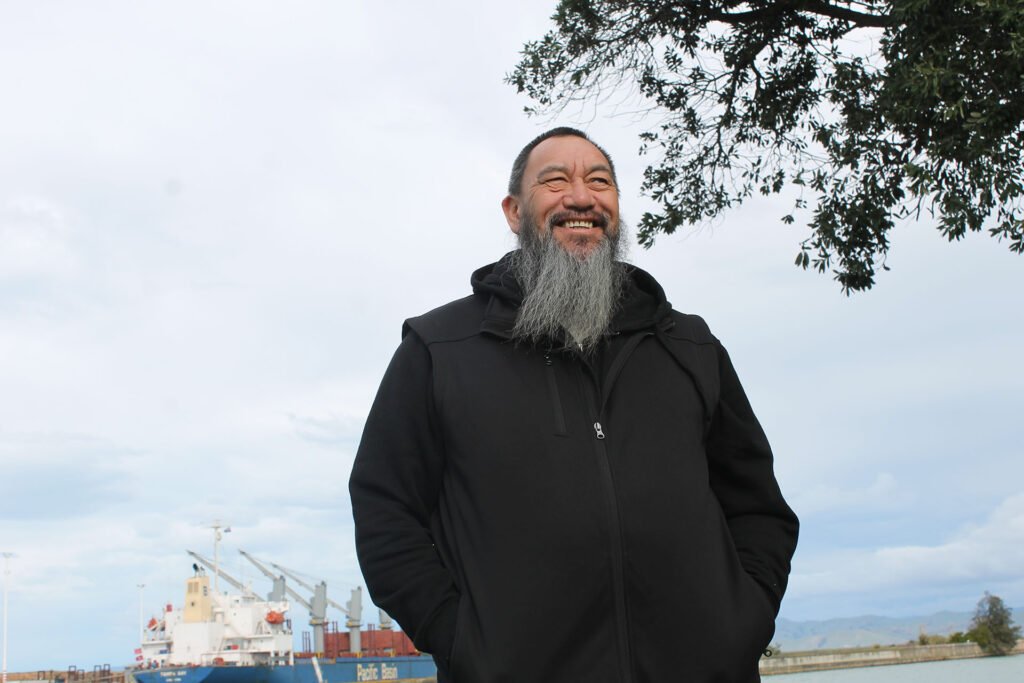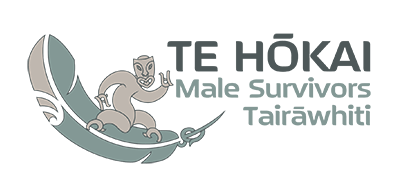
A Gisborne support service for male survivors of sexual abuse is run by men, for men, with a particular focus on te tane Tairawhiti.
“YOU’RE weak.” “You let him.” “You’re gay.” “You were asking for it.”
These falsehoods often run through the minds of male survivors of sexual abuse and, as a survivor himself, Winton Ropiha has heard them all.
And it is that lived experience he brings to the table in his role as peer support for the fledgling service Te Hokai: Male Survivors Tairawhiti.
Launched in Gisborne at the end of April, Te Hokai is affiliated to the national Male Survivors Aotearoa (MSA) organisation and is overseen by – but separate to – Tauawhi Trust, a community partner to Tauawhi Men’s Centre and Presbyterian Support East Coast.
The service offers support to male survivors, whether that be help navigating around agencies that could offer assistance, just being there for a chat, or even deeper engagement.
It works with men from all walks of life and all ethnicities, but is unique in that, being set in the bicultural rohe of Turanga, it can offer a te ao Maori view where appropriate.
Winton believes that is crucial in that, when working with Maori, it may not be only the “survivor” who comes looking for help.
This sort of abuse can have long reach, right into the whanau and hapu, and down through the generations, he says.
That’s why we are also here for whanau who feel ready to reach out.
He admits there can be an element of whakama – shame or stigma – attached to disclosing a history of sexual abuse but believes that is misplaced.
That is not their shame to carry, he says, and it never was.
Growing up as a “pa child” in the 1970s at his Te Whanau a Kai turangawaewae at Waituhi, Winton (Ngati Kahungunu/Te Whanau a Kai) divided his time between there and his mum’s home at Whakaki.
My mum loved and was much loved by all her whanau but she worked very long hours so being able to go and stay with my nan worked well for me, he says.
Even at Waituhi I was never alone. I had lots of whangai brothers and sisters, and being a marae child in the country meant we all lived as a hapu, in each others houses.
And while my mum taught me about the fundamentals of love, she made sure there were good men around me – role models and older cousins – so I could learn about things like work, mateship, all that stuff that comes with being a man.
Having been whangai’d by his loving nan at Waituhi, he and the other tamariki thrilled in running wild around the awa and farmland so it was in many ways an idyllic childhood, he says.
That was until it wasn’t.
Now aged 54, Winton had not even started primary school when an adult started abusing him at Waituhi:
I didn’t even know it was abuse.
That ended after about a year when he left the home they shared but then, five years later at Whakaki, it happened again.
It was a different abuser, a different form of abuse, but really, predators can turn up anywhere, he says.
At the time I didn’t say anything, I don’t even think I knew it was abuse. I knew something was wrong but because I had been threatened by my abusers, I couldn’t say a word.
I just carried on my life, just being a normal child, but I always had to keep this secret that separated me from my friends and whanau.
Winton kept that secret right into his teens, a time when he began thinking about his abusers wondering where they were, if they had abused others and, if so, would that have been his fault for not speaking up.
Even though that is never true, that’s the cycle of blame that goes through your head, he says. It is too much for anyone to bear, no matter how old they are.
Winton eventually disclosed the abuse to his wife but, not taking it any further, the impact showed itself in some unhealthy behaviours within his relationships.
By the time he was in his 40s, however, he had fully disclosed his trauma and made big steps on the road to healing through group work and counselling.
We went as a whanau on a huge roadie to the bottom of the South Island, where I knew one ‘bad uncle’ lived, in an effort to see him and tell him I forgave him, he said. That was never my job, to forgive, but that’s what I wanted to do.
We never tracked him down but when he died a few years ago my former wife asked if I wanted to go to the tangi to seek some closure. I just said nah, there was nothing to be gained from talking to a box and I had already come to my own place of acceptance.
In hindsight Winton belives that, like many survivors, he didn’t speak up because he wanted to protect those who loved him.
But while in one way that can feel like the right thing to do, in another you are bowing to the wishes of your abuser by not telling what they did.
At the end of the day, your whanau only want what’s best for you.
As the father of six children – the oldest now well into his 30s – he says that’s certainly what he wants for his loved ones.
I feel I have been able to reclaim the mana taken from me, and I want other men to be able to do the same.
– Contact Te Hokai peer support worker Winton Ropiha by phone 0274-124-495; e-mail info@malesurvivortairawhiti.
